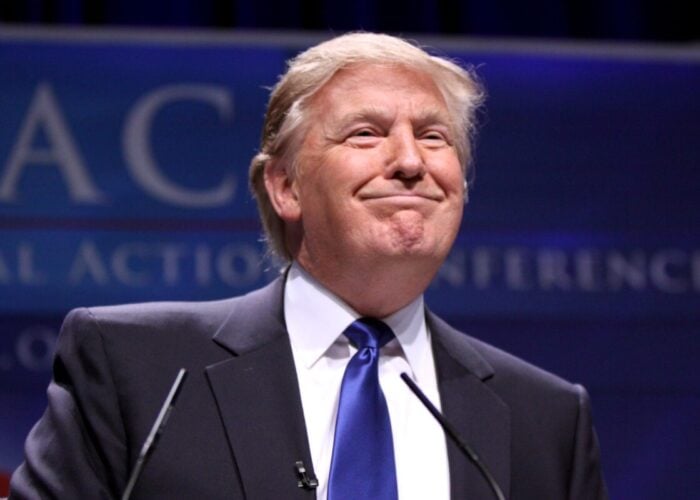Lobbyists protecting fossil fuel industry interests including the Koch brothers have been criticised openly by Barack Obama this week for “standing in the way of the future” by attempting to hamper the progress of renewables.
In a speech given at a clean energy summit in Nevada on Monday, hosted by the state’s senator Harry Reid, Obama reiterated his support for solar and wind, highlighting the successes that have been made in renewable energy in a few short years.
Unlock unlimited access for 12 whole months of distinctive global analysis
Photovoltaics International is now included.
- Regular insight and analysis of the industry’s biggest developments
- In-depth interviews with the industry’s leading figures
- Unlimited digital access to the PV Tech Power journal catalogue
- Unlimited digital access to the Photovoltaics International journal catalogue
- Access to more than 1,000 technical papers
- Discounts on Solar Media’s portfolio of events, in-person and virtual
In contrast to this success, he said, “billions of dollars” of taxpayer money is spent on what he called “corporate welfare” for the fossil fuel industry. The president’s words are perhaps the most high profile example to date of a mainstream politician drawing attention to the fact that while the public often sees and hears in the media about subsidies and support spent on renewable energy, little is made of the tax breaks and incentives given to oil and gas companies.
Obama said opposition to renewables including “massive lobbying efforts backed by fossil fuel interests or conservative think tanks” was trying to protect an “outdated status quo”. Renewable energy is an “American energy revolution” comparable to going from telegraph poles to smartphones in less than a decade, Obama said. His appearance at the summit follows the unveiling of his administration's Clean Power Plan at the beginning of August.
In emotive rhetoric, the president attempted to engage with the debate on broader terms than simply pushing for the increased deployment of renewables for environmental reasons, or those linked with international carbon targets. He also tried to depoliticise the issue to an extent, highlighting the formation of sometimes unlikely partnerships and coalitions of progressive and libertarian citizens to promote solar in particular.
The president argued that renewables have crossed the political divide, especially at grassroots level, where the anti-big-government Tea Party movement has allied itself with green and pro-solar groups that are often considered its political opposite. These groups have come together, he said, to exercise their freedom of choice to select “cleaner, cheaper, more efficient energy”.
In fact, Obama argued, in language designed to appeal to both sides of the political coin, preventing this consumer choice is also anti-free market, against innovation and even said that efforts backed by the Koch brothers and others in “pushing for new laws to roll back renewable energy standards or prevent new clean energy businesses from succeeding” was “not the American way”.
“We see where consumers want to go,” Obama said. “And that, let’s be honest, has some big fossil fuel interests pretty nervous – to the point where they’re trying to fight renewable energy.”
Kochs ‘undermining competition’
One fairly recent example of this lobbying was seen at the beginning of this year. A reactionary treatise part-disguised as an analytical report, “Filling the solar sinkhole: billions of bucks have delivered too little bang” was published by the Taxpayers Protection Alliance (TPA). The document was a vociferous condemnation of the investment tax credit (ITC), the federal scheme which is due to be scaled back at the end of next year.
PV Tech reported in February that 16 out of 25 sources cited by its authors as research references could be attributed to groups either founded or directly funded by the Kochs, the siblings who own one of America’s wealthiest private companies and who have been accused on numerous occasions of lobbying not only for their carbon-intensive industry interests, but also on a number of other prominent socio-economic issues.
At the time, Ken Johnson of the Solar Energy Industries’ Association (SEIA) told PV Tech the Koch brothers and their allies were diverting attention away from the money spent propping up the incumbent fossil fuel industries with a range of questionable tactics.
“They prod conservative groups, many of which they fund directly or indirectly, to attack clean energy. If it served their purposes, they would portray Snow White as an adulteress, a deadbeat and a crack queen,” Johnson said.
The SEIA said it was willing to wade in and give the lobbyists the “bare knuckle brawl” they seemed to invite with their tactics.
On a global level, UK renewable energy advocate and industry executive Jeremy Leggett recently appeared to echo this sentiment when he blogged exclusively for PV Tech and warned that “we [the solar industry] are virtually invisible” and urged it to fight harder in what he called the “carbon war”.
Obama said in his speech that as well as “undermining competition in the marketplace” these tactics amounted to inconsistency from groups which are frequently seen to oppose universal healthcare as a “socialist” concept.
“Ordinarily, these are groups that tout themselves as champions of the free market,” he said.
“But in this situation, they’re trying to undermine competition in the marketplace, and choke off consumer choice, and threaten an industry that’s churning out new jobs at a fast pace… They’re even fighting to protect billions of dollars of taxpayer dollars in corporate welfare each year that's going to fossil fuel companies.”
Some utilities are adapting
Regular readers of PV Tech will have seen accusations before that anti-solar interests are being served both openly and covertly by groups with seemingly innocuous and unrelated titles, such as TPA, the 60-plus Association and the Edison Electric Institute, often on behalf of electric utilities.
Edison Electric Institute represents all investor-owned utilities in the US and was alleged to be involved when one utility, Arizona Public Service (APS), was accused in 2013 of channelling money into not-for-profit groups to fund anti-solar campaigning, including television commercial which implied normal households were being hurt by money spent on keeping residential PV on the grid.
APS was also accused a while back, in a still-ongoing saga, of trying to change property laws to tax homeowners for hosting leased PV panels on their roofs. Then, analyst Matt Feinstein of Lux Research said that opponents of solar were trying to use any tactic they could which included attempting to reinterpret regional and state-level legislation where they had failed on the national level.
Obama said this week that not all utilities were dragging their heels and preventing change from occurring. He conceded that some concerns of the electric industry were legitimate, including the challenge of accommodating increasing amounts of distributed resources, both from cost and technical perspectives.
Going forward, he said, some utilities recognised the changes that are taking place and adapting their business models. He talked about innovations in areas including energy storage and smart metering and how they could enable the US to “use renewable energy better” as well as the opportunities that will exist in the space.







